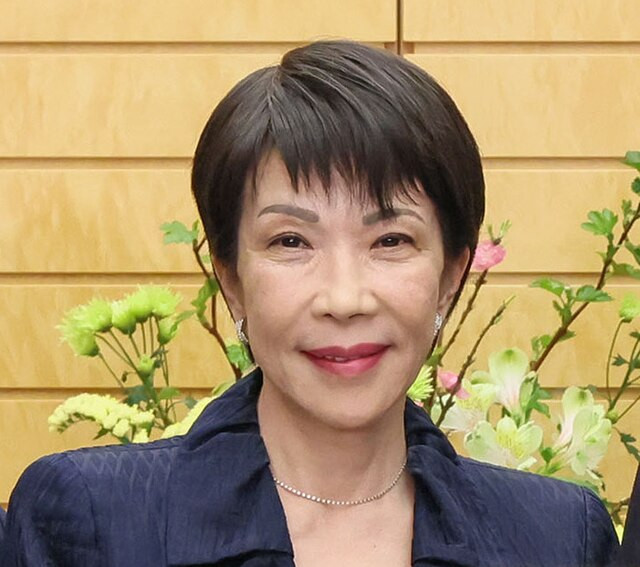Japan's parliament elected Sanae Takaichi as the country's first female prime minister on Tuesday, ending months of political uncertainty but marking a sharp conservative turn in Tokyo's leadership. The 64-year-old ultraconservative replaces Shigeru Ishiba, who resigned earlier in the day after his ruling Liberal Democratic Party (LDP) suffered a heavy defeat in the July election.
Takaichi secured 237 votes, just four above the required majority, defeating opposition leader Yoshiko Noda, who received 149. As the result was announced, Takaichi stood and bowed deeply, a symbolic gesture marking Japan's first female premier in history.
Her victory followed a coalition deal between the LDP and the Japan Innovation Party (Ishin no Kai), a right-leaning bloc that shares her hawkish defense policies and revisionist views of Japan's wartime past. The alliance restored the LDP to power but left the government without a clear majority in both houses of parliament - a weakness analysts say could make her administration unstable.
LDP Secretary General Shunichi Suzuki apologized for the prolonged power vacuum that followed the election, saying on NHK that the new coalition will work with opposition parties to "quickly tackle rising prices to live up to the expectations of the people."
Later in the day, Takaichi unveiled a 19-member Cabinet that included only two women - Satsuki Katayama as finance minister and Kimi Onoda as economic security minister. Despite earlier pledges to improve representation, the appointments underscore Japan's deep gender imbalance: women hold just 15.7% of seats in the lower house, according to government data.
Takaichi, a longtime protégé of the late former prime minister Shinzo Abe, is expected to continue his agenda of strengthening Japan's military, revising its pacifist constitution, and deepening security ties with the United States. She has said she intends to prioritize economic stability, combat rising prices, and compile a stimulus package by December.
However, Takaichi's social views remain firmly conservative. She opposes same-sex marriage, supports male-only imperial succession, and rejects proposals allowing married couples to use separate surnames. She has also drawn criticism for past visits to Yasukuni Shrine, where Japan's war dead - including convicted war criminals - are enshrined, though she recently refrained from visiting and instead sent a religious offering.
"The prospect of a first female prime minister doesn't make me happy," sociologist Chizuko Ueno said on X, arguing that while Takaichi's appointment raises Japan's global ranking for gender representation, "that doesn't mean Japanese politics will become kinder to women."
Others see symbolic value in her rise. Naomi Koshi, who became Japan's youngest female mayor in 2012, told Kyodo News that "there is great significance in Takaichi becoming prime minister, with a broader impact on society."






